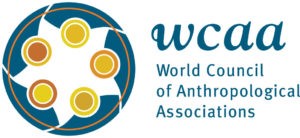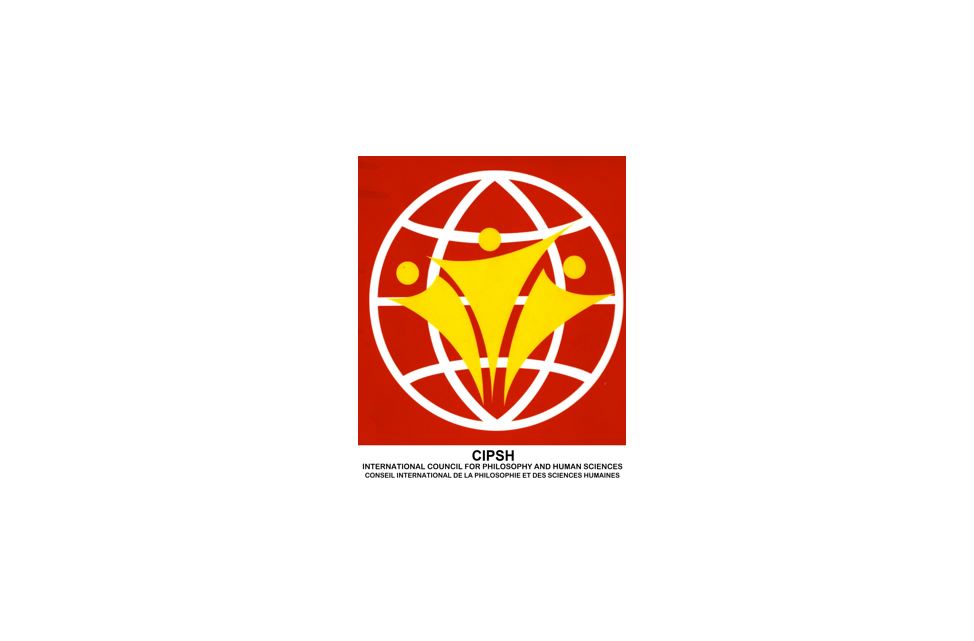
NEWS
Opening ceremony of the UNESCO-Chair „Global Understanding for Sustainability“
On May 2, 2018, the new UNESCO-Chair on “Global Understanding for Sustainability” was inaugurated at the University of Jena, Germany. IYGU’s Executive Director Benno Werlen will hold the new chair. The chair will be part of a worldwide network of over 700 UNESCO-chairs to support the teaching and research goals of the world cultural organization. The ceremony’s keynote talk and welcoming speeches ceremony can be viewed here.
29th June 2018
IYGU Harvest Event, Nov 21, Jena, Germany
The IYGU Harvest Event will be held on Nov 21, 2017 from 1 to 5 pm at the Aula of the Friedrich Schiller University Jena. The ceremony will be preceded by a press conference at 12:00 pm in the Senatssaal (in the same building) and will be followed by a reception in front of the Aula.
It would be wonderful to see you there! Please follow our invitation.
9th November 2017
World Humanities Conference, Aug 6-12, Liège, Belgium
APHELEIA publishes booklet with international poems
The World Humanities Conference, which is organized by CIPSH, is kicking off soon! Check out the conference homepage and the preliminary program. The program is being continually updated, so make sure to check back regularly.
There will be two dedicated IYGU sessions and many more events organized by people from the IYGU network and Global Action Center for the Arts.
A few of the highlights in chronological order:
- On August 7, Margalit Berriet from the IYGU Global Action Center for the Arts will be participating in a discussion panel on Aug 7, 2:30-4pm on the role of the arts for human flourishing. Margalit will be speaking on how the arts help to bring individuals, societies, and the world together.
- Make sure to check out the Arts and Society session organized by Margalit Berriet and her team on August 8, 6:30-8pm to get a glimpse of the many wonderful art projects from around the world that were submitted to the Arts and Society project.
- There is also an APHELEIA session on August 9 from 9-10:30am in which Luiz Oosterbeek, Inguelore Scheunemann, Renaldas Gudauskas (all from the IYGU network) and many others will be discussing “The Humanities in Environmental Management – Cultural Integrated Landscape Management”.
- And finally, check out the two IYGU sessions on August 9. The first one titled ‘The Program of the IYGU as a Lever for Sustainability’ runs from 2:30-4pm and features Benno Werlen, Vladimir Kolossov (IYGU Steering Committee), Armin Reller (IYGU Scientific Panel), and Karl Donert (IYGU Outreach Panel).
- The second session on Aug 9 runs from 6:30-8pm and is titled ‘Reflecting and Reviewing IYGU’. It will take the format of a roundtable discussion.
It would be wonderful to see you in Liège!
25th July 2017
IYGU partner APHELEIA has published a booklet with poems read by students at the poetry night during the 2017 APHELEIA intensive course held from March 28 to April 8, 2017, in Mação, Portugal. The booklet was edited by the students and contains poems in various languages plus their English translations. Check it out by clicking here.
Radio interview with Benno Werlen
The regional radio station MDR Kultur broadcasted an interview with Benno Werlen (in German; length: 40:11min) on May 27, 2017. Check it out by clicking here.
Launch of the Arts and Society platform
The IYGU Global Action Center for the Arts hosted by Mémoire de l’Avenir (MDA) together with the IYGU, UNESCO-MOST, and the International Council for Philosophy and Human Sciences (CIPSH) are happy to announce the opening of the Arts and Society Platform.
The people at MDA are working hard to add more and more projects over the next weeks so check back regularly to see the latest additions.
You can also show your support for MDA and their amazing work by voting for them to increase their chances of winning €10,000 in the “construisons-un-monde-meilleur” competition. If successful, MDA would use the money to support the Arts and Society project.
IYGU Story Map competition winners announced
The jury had a very hard time selecting the winning entries from all the creative and technologically advanced contest submissions. Many more Story Maps than those presented here would deserve mentioning. However, we had to limit it to the most outstanding ones in each of the two age groups: (A) high school students aged 15 to 19 and (B) college/university students aged 19 to 30.
There was an equal number of votes for two submissions competing for the second place in the group of college/university students, hence there are two students who will be receiving the second price.
While there was a large number of submissions overall, only very few of them came from high school students so that only the first two ranks in this group have a name attached to them.
Congratulations to the winning submissions and a big thank you to all those who submitted their wonderful maps!
ESRI has put together a website with a collection of the winning IYGU Story Maps: Meet the winners here!
Finally, here are the first three places in each group (make sure to check out their Story Maps by clicking on the links):
A High school students aged 15 to 19
(1) Chi-Lei Lin, Kang Chiao Bilingual School, China-Taipei
Map title: Hollywood in Taiwan
Description: “This Story Map is about Taiyupian, which is also called Taiwanese-dialect films. This kind of film art played an important role in the past of Taiwan, especially from 1950s-1980s. In this Story Map Hollywood in Taiwan: The Story of Taiyupian, you will learn about the history of the development of Taiyupian. Also, with the performance of maps, the information about Taiyupian will be clearly showed to you. Hope you enjoy!”
Category: Sport/entertaining//recreating
(2) Ella Jaeger, Wentzinger Gymnasium, Germany
Map title: Wasser in Kalifornien (Water in California)
Description: „The story Map talks about the latest drought in California, how it came to be, what consequences it had and how it influenced the use of water.”
Category: Wasting/recycling//preserving
B College/university students aged 19 to 30
(1) Leng Ying Khoo, University of Colorado Boulder, USA
Map title: The Impacts
Description: “This story map depicts the daily routine of a typical American college student and how seemingly trivial decision that a person make can lead to a series of impacts.”
Category: Wasting/recycling//preserving
(2) Spencer Elford, McMaster University, Canada
Map title: Concrete Jungle: Urban Expansion and the Rise of the Megacity
Description: “We are living on an urban planet. For the first time in human history more people are living in cities than anywhere else.”
Category: Working/housing//urbanizing
(2) Karl Chastko, McMaster University, Canada
Map title: Food, Water and 7 Billion People: Improving Water Efficiency in Agriculture
Description: “Every day the average person drinks 2-4 liters of water while they effectively consume approximately 2000-5000 liters of water indirectly through the food they eat. This simple stat doesn’t tell the whole story of how water is allocated to produce food across the globe. I have created this story map using open data from the ArcGIS online living atlas predominantly, the landsat imagery service, USA crop land 2013, MODIS imagery and the imagery basemap. These data sets all come together in this story map to illustrate how decisions you make at the grocery store and market can have global implications on the global water supply!”
Category: Eating/drinking//surviving
(3) Yu-Hsiang Yang, National Taiwan University, China-Taipei
Map title: China house-buying power is rolling the world up
Description: “Along with globalization in the economic and financial area, buying real estate internationally becomes more and more common. Chinese-ethnic people pour money in the real estate market abundantly in Europe and North America, which leads to a rise in housing prices locally. The reason why this happens, it plays an important role that Chinese-ethnic society possess a deep-rooted concept of assets.”
Category: Working/housing//urbanizing
Energy Efficiency in the Neighborhood: An Introduction to the effort Instrument
Click here to read about the so-called ‘effort instrument’ developed by five Thuringian companies (including the IYGU partner JENA-GEOS® Ingenieurbüro GmbH) as well as the Nordhausen University of Applied Sciences. This instrument is intended to comprehensively address social and environmental issues that arise in the course of an energy transition in neighborhoods and communities. It adopts an interdisciplinary and holistic approach and provides a method for planning energy-efficient neighborhoods by including aspects such as urban planning, historical preservation, and ecological affairs. With a foreword by Benno Werlen.
AAG Statement on President Trump’s Executive Order
Click here to read a statement by AAG President Glen MacDonald and the governing Council of the American Association of Geographers (AAG), or visit the AAG website for these and other AAG news.
The December IYGU Newsletter is now available
Click here to read about the most important events, updates, and developments for the IYGU!
14th December, 2016
Working, Housing: Urbanising and Communicating, Networking: Interacting are now online!
Two of the IYGU Open Access Springer books, Working, Housing: Urbanizing (eds) Allen Scott, Peter Taylor and Jennifer Robinson and Communicating, Networking: Interacting (ed) Margaret Robertson can now be downloaded as open access books or purchased as a soft cover printed version.
23rd November, 2016
News from our German RAC
Click here to read about the recent updates from the German Regional Action Center in Lueneburg.
The November IYGU Newsletter is now available
Click here to read about the most important events, updates, and developments for the IYGU!
16th November, 2016
The October IYGU Newsletter is now available
Click here to read about the most important events, updates, and developments for the IYGU!
The September IYGU Newsletter is now available
Click here read about the most important events, updates, and developments for the IYGU!








